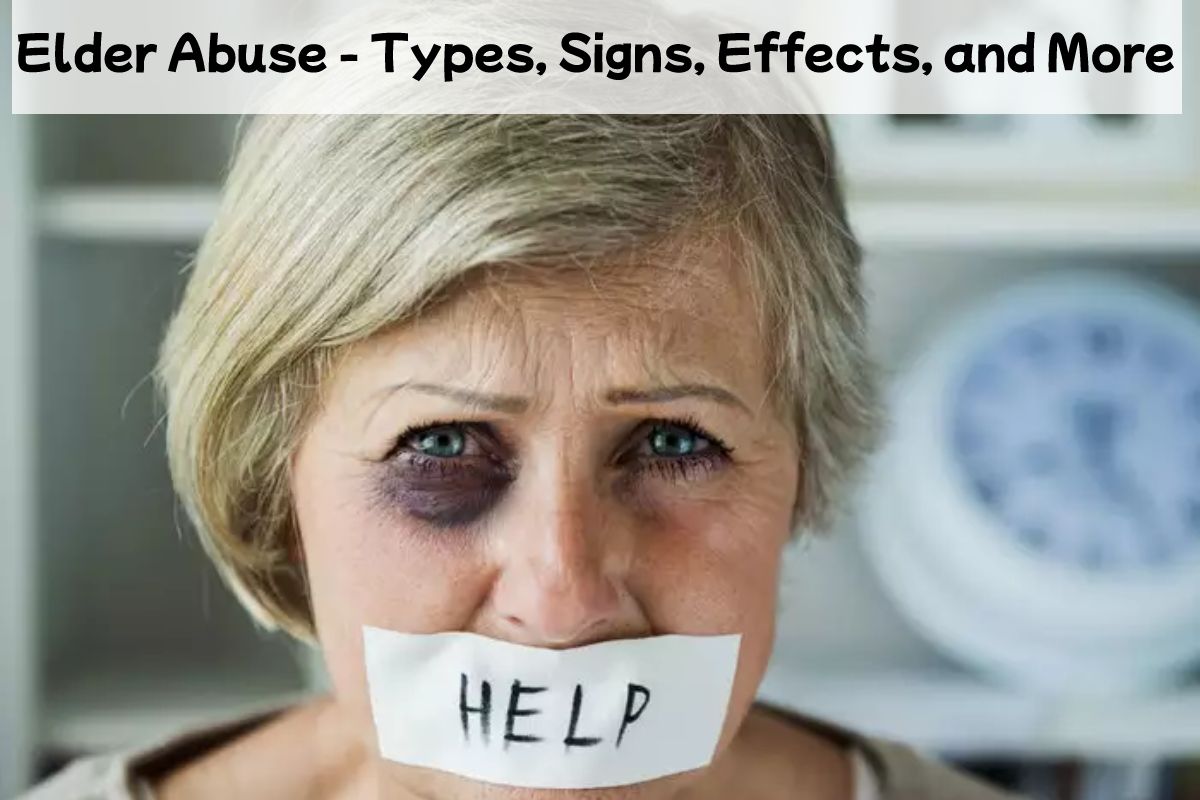Table of Contents
What is Elder Abuse?
Elder Abuse is nothing but intentional or unintentional heartbreaking, emotionally or physically, to an aged human being. It usually occurs at two locations:
- Institutional Elder Abuse
- Domestic Elder Abuse
It can happen anywhere and to anyone, thus, of the person’s age, sex, religion, race, cultural background, or ethnicity. As a result, thousands of older people above 60 get neglected, abused, or financially exploited every year.
It is a planned act or failure to act that creates or causes a risk of harming an older-aged person. An elder is someone whose age is 60+. The abuse occurs by a person which the more senior trusts or at the hand of a caregiver.
Types of Elder Abuse
There are several types of It. They are :
• Physical Abuse
It occurs when someone physically harms someone by hitting, pushing, or slapping them. It includes holding older people without their permission, for example, by being locked in a room or tied to furniture.
• Emotional Abuse
This includes a caregiver speaking hurtful words, yelling, threatening, or repeatedly ignoring an older adult. Another form of emotional abuse prevents the person from seeing close friends and relatives.
• Neglect
It occurs when caregivers do not respond to the needs of older people. This may include withholding physical, emotional, or social conditions or access to food, medication, or health care.
• Abandoned
It means a needy older adult has no plan to take care of them.
• Sexual Abuse
This includes forcing a caregiver to view or participate in sexual activity with an older person.
• Financial Abuse
This can occur when money or property is stolen from an older adult. This may include forging checks, receiving someone else’s pension or Social Security benefits, or using someone’s credit card and bank account without authorization. This includes changing ownership of a home without a will, bank account, life insurance, or permit.
Signs
- Changes in mental status
- Frequent infections
- Bruising, scratches, welts, or cuts
- Unexplained weight loss
- Refusal to speak
- Signs of dehydration
- Lack of cleanliness
- Displays signs of emotional trauma
- Broken specs or physical signs of punishment or being restrained.
- Unpaid bills despite adequate financial resources or displays signs of insufficient care
- Broken bones or fractures
- Poor physical appearance
- Lacks medical aids such as walker, glasses, or hearing aids
Effects
It disturbs not only individuals but also society and families. Personal losses related to misuse can be deadly. Losses can include tangible things like money, cars, and homes and intangible things like independence, dignity, and security. In addition, more than half of those who expe
It also damages family relationships. Disagreements can arise between siblings, spouses, children, parents, etc. This creates a feeling of loneliness and isolation in older people. It is also the cause of great heartache and heartache.
It affects society as a whole. Older adults who have been abused lose their ability to live independently and require ongoing support from health care or residential facilities. For example, financial abuse can drain assets and savings, making it difficult for older people to get essential medicines or pay for eye, ear, and dental care.
Prevention
So many strategies have been implementing to prevent, address and mitigate It. Interventions, primarily implemented in high-income countries to avoid misuse, include:
- Public and professional awareness campaigns
- Screening (of potential victims and abusers)
- Residential care policies to improve and define standards of care
- Caregiver training on dementia
- Intergenerational programs of school-based.
- Caregiver support interventions (includes stress management and respite care)
Conclusion
Anyone in this world can be abusive or neglectful towards the elders, whether a family member or a caregiver. However, many efforts have been made to deal with the problem in the United States. For example, they had built infrastructure in which protection services respond to abuse by devising follow-up treatment plans and conducting investigations. And also, some developed countries have received little attention on primary prevention techniques.
Families in other developed countries still face severe challenges, including economic recession, changing characteristics, and forced immigration—the method of industrialization between the emotional hardships, generations, and production material for elders. However, By increasing global interest in inequality, gender, and violence prevention, a healthy future generation will end this age-old problem.

